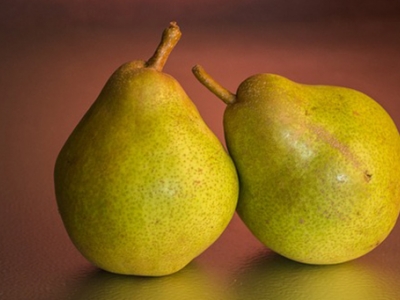
Do I look godly in this?
God's view on body image and how to teach it to your kids.
Body image has long been a fraught area for many of us. From the first baby doll we held as a toddler, we started forming our ideas of what defines “cute”. Advertisements reach us everywhere, teaching us that beauty and happiness go hand in hand. And at the end of a hard day, as we sink into the couch and switch on our favourite TV show, we are taught - over and over again - that heroines look like this, and heroes look like that. And I won’t be spoiling the surprise if I tell you that you won’t find one in a thousand who have an above-average Body Mass Index, or a crooked nose.
All these body-image messages are impossible for us to escape. But do we really have to leave our perception of our own bodies - and our kids’ perception of theirs - in the hands of product marketers? What does God have to say about body image, and how should it impact our parenting?
Beauty is important!
First things first: God is a beauty-loving God. From the rich variety of colours we see in reef fish and coral, and the artful patterns on the skin of an apple, to the glittering stars in the night sky - so much in creation testifies to the importance God himself places on beauty. He made it beautiful on purpose, for his enjoyment and ours. Genesis 1 and 2 shows God himself delighting in all he made - including, and especially, people.
It’s right and good for us to enjoy the beauty in people, too. Each person is fearfully and wonderfully made (Psalm 139:14). God planned for people to live in bodies, to grow up to find each other sexually attractive (think Song of Songs!), to marry and have cute babies. He wants me to take pleasure as I comb the soft, bright ringlets of my daughter’s hair - he made me to take pleasure in it.
I have heard of people who never comment on their children’s appearances, because they don’t want to predispose them to care too much about their looks. However, given God’s own obvious delight in beauty, if we try to combat a worldly view of our bodies by denying the existence or value of physical beauty and attraction, we’re missing a big part of his heart.
Practical ideas:
- Don’t be afraid to praise your kids for the beauty God has given them
- Teach kids to appreciate beauty in all its forms - art, clothing, nature, music, food…
People are more than their beauty
Of course, just because beauty is important to God doesn’t mean it’s all-important to God. Beauty is fleeting (Proverbs 31:30), and God cares more about the heart (1 Samuel 16:7). In fact, our character, and not our body alone, can make us beautiful (1 Peter 3:3-4). Because of this, a person can never be judged or valued according to their external beauty, and neither should it be the focus of our attentions. If we are constantly evaluating our children’s physical appearance, or ever making them feel that their appearance is critical to their likeability, something has gone very wrong.
Practical ideas:
- Talk to your kids a lot more about their character than you do about their looks. A running commentary on their appearance, even if it’s encouraging, can make kids feel like their appearance is more important to you than their presence or personality.
- Never criticise anyone for a lack of external beauty.
Beauty is in the eye of the Creator… and the beholder
God not only created beauty, but he created diversity - on purpose. We don’t all look the same - on purpose. Do you think the exquisite variety in the birds, fish, animals, insects and plants was spectacular (Genesis 1), but in humans it was a grand mistake? Would it really be better if we all looked like Elle MacPherson and Brad Pitt?
Cultures around the world perceive beauty differently. Where I live in Southeast Asia, the people praise me for my excellent nose (really, they do!). But in white Australia, my nose would probably be considered too angular (although people are too polite to mention it). So, what am I to think of my nose?
Research has shown that people are perceived as more beautiful if they have more “regular features”; that is, if they look absolutely medium, absolutely average. What this means is that our perception of beauty actually changes according to what we spend most time looking at. Whatever we see most becomes our “average” and, therefore, our beautiful. This is why your baby is way cuter than everyone else’s: your hours of gazing at him or her has made that sweet baby-face your “average”, your standard of beauty in a baby, by which all others will be judged (often negatively!).
Because of this, if I spend my time looking at actual people in all their variety, I will see actual people, in all their variety, as more beautiful. On the flipside, if I spend hours looking at magazines filled with photo-shopped pictures of models who all conform to one style of beauty, they will become my new “average”, and I will start to perceive myself, and others, as less beautiful as a result.
All this to say - you are what you are. God made you how you are, and he likes it. People who look at you long enough will learn to like what they see. So, gaze at the beautiful diversity of the people around you… and forget about your nose.
Practical ideas:
- With your kids, subscribe to a website which purposefully exposes and confronts the beauty ideals put forward in the media. (One example is Beauty Redefined)
- Unsubscribe from any unnecessary media which reinforces a narrow idea of beauty to your kids. This might include certain magazines, toys, books, TV shows, movies, social media contacts, or even junk mail.
- Spend lots of time with real people!
God is stronger than culture
Finally, as we battle the negative messages around us, we need to remember that the Spirit of Jesus is more powerful than any lie we or our kids have believed, or will be tempted to believe in the future.
Practical ideas:
- Ask for Jesus to shape and direct your family’s body image, and know that he can do it!
In a nutshell, then: God loves beauty; God loves character even more; he made people different, and that is beautiful to him; and he is powerful to save us from unhelpful messages. This is a great foundation for families in the battle against negative body image.
For more articles from Growing Faith, subscribe to our monthly e-newsletter.
To hear about the latest books and resources from Youthworks Media, subscribe here.






